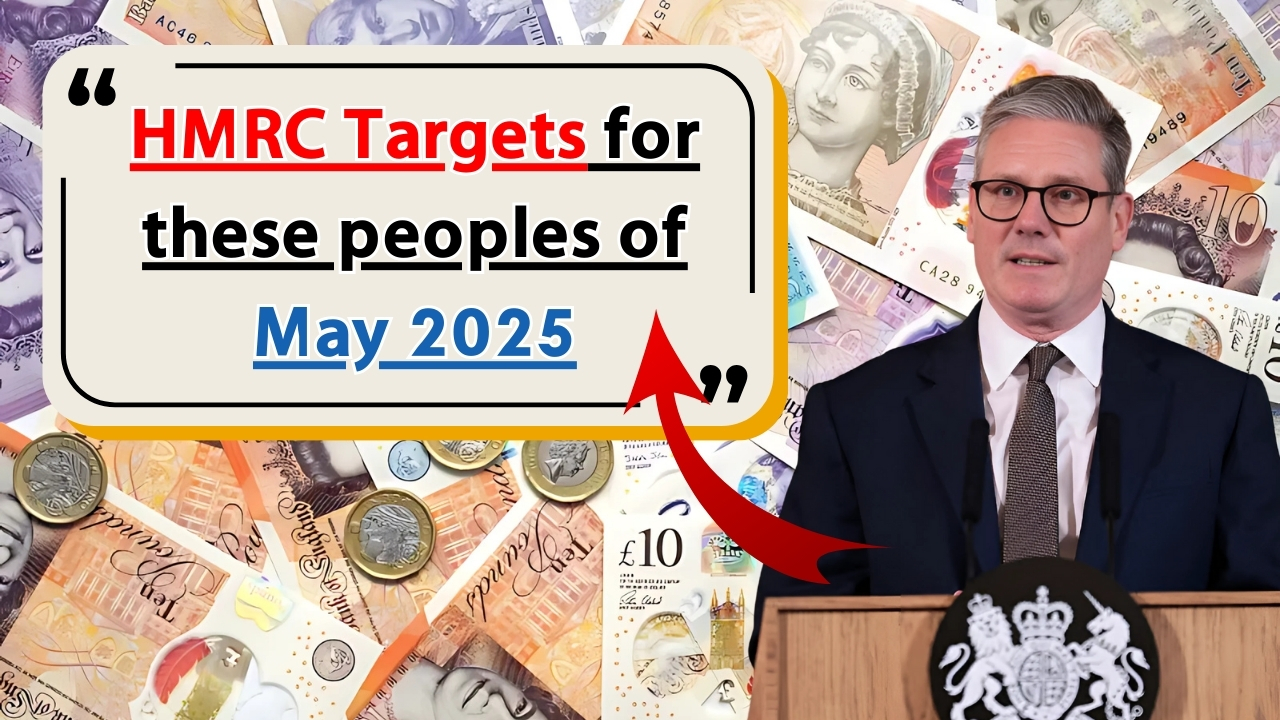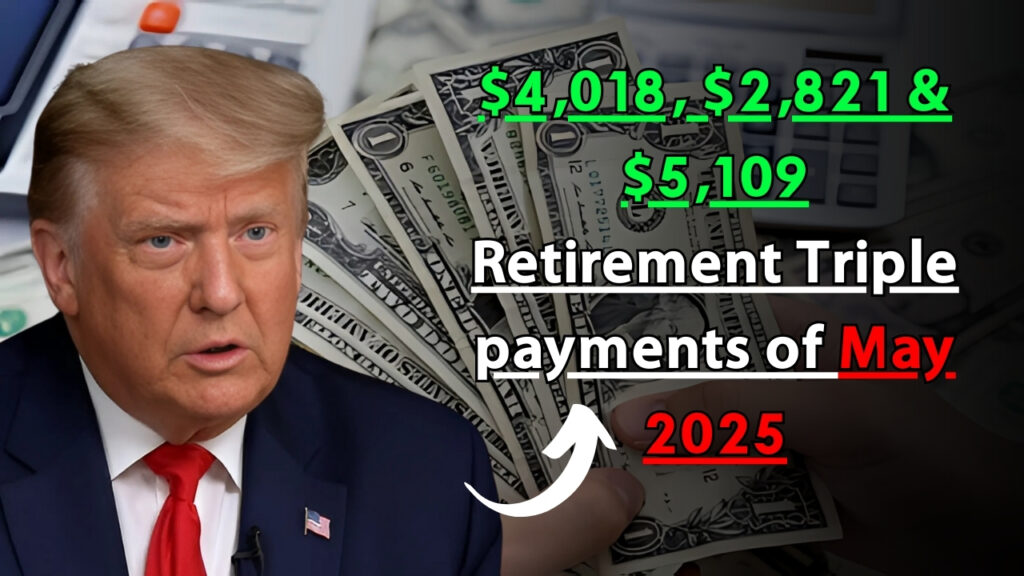HMRC Targets : Etch in the new tax year and Her Majesty’s Revenue and Customs (HMRC) is already demonstrating an early delivery of this year’s compliance programs – May 2025!
These activities illustrate the service’s emerging enforcement and collection strategy, with certain taxpayer segments being targeted this month in particular. Knowing if your are within these target areas might help you to get your house in order if HMRC come calling.
HMRC’s Enforcement Priorities Right Now

HMRC changes the areas of its compliance work from time to time in the light of risk and resource. The May 2025 enforcement strategy builds on this move, pushing the Service toward data-driven targeting, deploying advanced analytics to target where the return indicates that there is a mismatch between stated income and financial activity. Several groups of taxpayers have been identified as a priority at this time:
Property Income Recipients
This month, landlords and speculators have come under the microscope once again particularly those with a portfolio of properties, or operating through a company.
With a better ability to match data, HMRC can compare who owns properties with who is earning rental income on them, thereby sniffing out under-reporting more effectively than ever before.
Investors in the buy-to-let sector who have not updated their tax affairs in light of recent legislative amendments are particularly exposed to being challenged.
The gradual withdrawal of mortgage interest relief has taken the vast majority of landlords out of the previous ‘simplistic’ tax calculation’ – and at least one commentator predicted that taxpayers who do not update their returns will be highlighted for review.
HMRC Targets Workforce Self-employed in some occupations
Some business sectors are attracting specific attention as a result of HMRC’s risk assessment. Financial services providers now perform additional due diligence on professionals such as GPs, IT contractors and lawyers operating via personal service companies.
This will follow patterns of claims for expenses and income reported, which HMRC’s systems have indicated as a possible concern.
Workers in the gig economy are being studied, with a focus on the multi-platform workers, who have complicated streams of income that can be hard to follow in the traditional way of reporting.
HMRC Targets Cryptocurrency Investors
There is also still yet more heat for digital currency holders in light of HMRC sharpening its tactics for taxing cryptocurrencies. The tax agency has stepped up its ability to track transactions on the blockchain, and is partnering with analytics firms to root out high-value traders who may have underreported capital gains.
The business data sharing agreements HMRC has recently entered into with prominent trading platforms have given HMRC a wealth of data on the trading activities of UK taxpayers, enabling a more targeted enforcement approach to be followed.
May’s initiatives have a specific bearing on those individuals who have been trading on multiple platforms or have taken part in DeFi activities without the necessary declaration/declaration of liability.
HMRC Targets Overseas Income and Assets
Meanwhile, the introduction of further international sharing of information agreements has led to HMRC having more and more sight of assets held in offshore jurisdictions. The Common Reporting Standard now links tax administrations in more than 100 jurisdictions, enabling them to automatically exchange financial account information.
May’s enforcement priorities include people linked to certain areas that have recently tightened their disclosure rules. Taxpayers with assets or sources of income in those areas may find themselves bombarded with formal inquiries seeking to confirm their tax status, even though they’ve already made comprehensive disclosures.
HMRC’s process for identifying cases for examination
A little more clarity on HMRC’s selection processes gives taxpayers the chance to consider their own vulnerabilities. Selection of cases in current practice is based on a number of complicated procedures:
Connect System Analysis: HMRC’s sophisticated new system is able to access information from more than 30 individual databases, manufacturers taxpayer profiles that can identify inconsistencies across datasets including income reported, property details and lifestyle indicators.
Third Party Reporting: Banks, payment processors, investment platforms and property registers are among those from whom HMRC receives information to independently verify declared income.
Risk Scoring: Risk is assessed using automated scoring systems that consider filing history, industry, and peer comparables of the taxpayer’s profile.
Whistleblower Reports: The IRS will pursue reports filed by whistleblowers, such as unhappy business partners, ex-spouses and employees, on a regular basis.
If You Get Such a Call, Here’s What to Do
Remain Calm If You Receive a Letter From HMRC About a Compliance Check If you are the recipient of a letter from HMRC, it is important to keep your cool and answer correctly:
Check the message is genuine: HMRC scam messages are still circulating. Verify that contact is made through legitimate sources and never provide personal information to unauthorised callers.
Review your records right away: Before you answer, collect all of your paperwork and make sure that you have supporting documentation for the information under scrutiny.
Think about seeking representation: We can offer valuable guidance on complex queries, help you communicate effectively with HMRC and explain the evidence we require or the points you need to cover in your response.
Reply in time: If you don’t respond to HMRC within the time they give you, you may ratchet up the dispute unnecessarily. If you need extra time, ask for an extension, rather than a week without any work.
Correct any real mistakes on a proactive basis: Should the examination reveal a true error in your tax filing, addressing such without delay and with full disclosure typically yields better results.
HMRC Targets Voluntary Disclosure Options
There are facility disclosure schemes still available to March 31 2011, aimed at taxpayers who know they may have made accidental errors in filing their taxes in the past and want to limit the penalty they may have to pay.
There are systems now in place that enable taxpayers to, of their own accord, through voluntary disclosure, before being commmunicated with in the course of an investigation.
The Digital Disclosure Service offers a simpler way to disclose undeclared income or gains that generally means a smaller penalty than would be the case if a non-compliant matter was brought to our attention. For more complex cases, especially those with overseas assets, there could be a need for more focused disclosure routes.
Preparing for HMRC Review
If you haven’t received a letter, May 2025 might still be a good time to take stock of your tax situation, especially if you are in one of the categories currently under watch:
Make sure the systems you use for keeping records reflect all income applicable and can support any expense deductions
Examine prior tax filings for possible mistakes or omissions
Ensure that there is full disclosure of any intricate structures, particularly with offshore elements
Determine whether your life circumstances require you to adjust how you report taxes
HMRC Targets Looking Forward
HMRC enforcement tools are changing quickly and cloud-based analytics and artificial intelligence are becoming increasingly central to the mix. The taxman has indicated that future compliance work will be even more data focussed, with more focus based on real-time intervention rather than looking back.
The expansion of Making Tax Digital requirements to more tax types in the future is set to revolutionise how HMRC monitors compliance, offering earlier insight revealing potential concerns ahead of submission of formal returns.
HMRC Targets Conclusion
And just because you find yourself in an HMRC focus area doesn’t mean you’ve done something wrong, but having an idea of what the current enforcement landscape looks like will assist you in readying yourself for the possibility of enquiries.
HMRC’s increased scrutiny should be very little or no disruption for the vast majority of compliant taxpayers, including targeted individuals to request a little more evidence.
Organised record-keeping, well-considered advice in complex situations and responding to problems when they arise may still be the best way to negotiate the changing compliance landscape of HMRC. Openness and positive engagement like this are very often the key to a better result than if you had waited for HMRC to find out your potential failings instead.
Also Read This-
New Tata Curvv launch with full black dhakad theme
$4,018, $2,821 & $5,109 Retirement Triple payments of May 2025, Check your account status
Rajdoot 175 comes with modern look and ABS features






